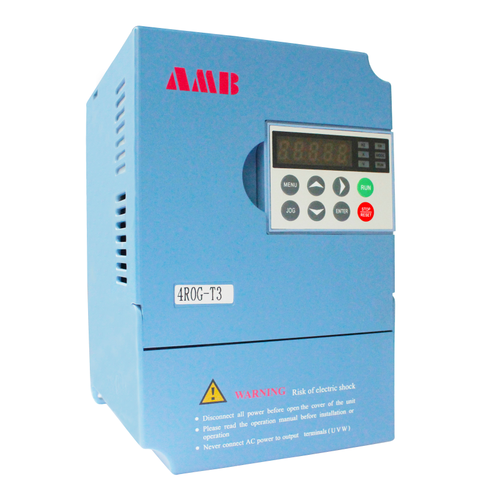With the continuous progress of technology, many enterprises have made great efforts in the innovation of mechanical equipment. From an objective point of view, hydraulic control is a very important link, and many technical personnel have invested in this aspect. With a lot of time and energy, the most important task at present is the speed regulation problem in hydraulic control. Some technicians have proposed to use frequency conversion instead of proportional speed regulation, and some technicians still insist on proportional speed regulation. The problem of speed regulation has become the current main problem. Strictly speaking, the application time of proportional speed regulation is long, and in today's work, it has shown certain deficiencies. Therefore, it is very important to explore the feasibility of replacing variable speed with variable frequency speed regulation in hydraulic control.
In terms of China's current development, mechanical technology and equipment have a decisive influence on the development of enterprises. In the long-term application of proportional speed regulation, although it has a greater positive impact, but today, with the increasing social demand, the indicators of various aspects of proportional speed regulation obviously show deficiencies, for example, costs have increased and efficiency Decline, the overall effect has not improved, etc. In contrast, variable frequency speed regulation has achieved certain success in theory, and has shown high superiority in many experiments. If it can be used in hydraulic control, the proportional speed regulation can be replaced by variable frequency speed regulation , Maybe there will be a better result. This article analyzes the feasibility of frequency conversion speed regulation instead of proportional speed regulation in hydraulic control.
1. Energy saving
The actual application of frequency conversion speed regulation is not traceable. In the past few years, due to the substantial growth of China's economy, companies in many regions have begun to consider the innovation of mechanical equipment. Although proportional speed regulation is very important To a large extent, it has a greater positive impact on hydraulic control, but in view of the current social needs and hydraulic control workload, there are obvious deficiencies. Relatively speaking, frequency conversion speed regulation has great advantages:
1. Significant energy saving effect
The application of variable frequency speed regulation in hydraulic control avoids throttling loss and overflow and discharge loss. On the other hand, the AC variable frequency speed regulation hydraulic system also improves the efficiency of the prime mover-asynchronous motor and improves the power factor, which cannot be solved by other hydraulic speed regulation methods. Proportional speed regulation did not solve this problem in the original work. With the passage of time, the overall hidden dangers became more and more serious. Some workers even found some hidden dangers in the hydraulic control that threatened personal safety. The pertinence of frequency conversion speed regulation provides a strong guarantee for the safety factor of hydraulic control. For energy conservation, most of the current work is promoting energy conservation. The energy crisis has posed a great threat to the development of the world. Sustainable use and energy conservation have become two major issues. From the perspective of energy saving, the frequency conversion speed regulation fully meets the requirements of the hydraulic control work at this stage.
2. Improve the life and reliability of the system
For the hydraulic control system, in actual operation, because the speed regulation problem is not well resolved, its life and reliability are greatly reduced, which directly affects the application of energy. From an objective point of view, the replacement of proportional speed by frequency conversion speed regulation can improve the life and reliability of the system to a certain extent. At present, it is mainly used in the hydraulic control system, which uses variable frequency speed regulation to operate. At the same time, the quantitative pump with low reliability is required to replace the variable pump with high system requirements. The advantage of this is that it can avoid the use of Servo valves with high requirements on the medium effectively improve the reliability, and in the long-term work, the float is small. In addition, the rotation speed of the oil pump is proportional to the flow rate. When the flow rate decreases, the rotation speed of the oil pump also becomes lower. In this way, the energy utilization efficiency is improved, and the energy saving effect is indirectly achieved. On the other hand, due to the improved energy-saving effect, the wear of the oil pump is greatly reduced and the service life is extended. From the above statement, in the hydraulic control system, the application of frequency conversion speed regulation instead of proportional speed regulation has high feasibility, and in terms of energy saving, it can reach a higher level.
3. Consumption reduction
For the hydraulic control system, the application of frequency conversion speed regulation can not only save energy, but also achieve more outstanding achievements in reducing consumption. First of all, in a lot of experiments and practical work, the technical staff found that after applying variable frequency speed regulation, the speed regulation range can reach 1:20. If it is used with a throttle speed regulation instrument when the flow rate is small, it can reach a wider range. Speed range. It can be seen that the effect of frequency conversion speed regulation on energy consumption is quite ideal. Since the hydraulic control system occupies a very important position among mechanical equipment, it needs further efforts to further improve the consumption reduction effect in actual work. At present, the frequency conversion speed regulation completely bids away the overflow loss and the system heat The rate is greatly reduced. At the same time, on the basis of no higher-demand servo components, the requirements for transmission media and filtration can be appropriately reduced. Energy saving and consumption reduction are the two major requirements for production and processing at this stage. The above three points fully illustrate the high feasibility of applying frequency conversion speed regulation in the hydraulic control system.
2. Simplification of the control system
1. Low speed stability problem
In the original work, the hydraulic system has been using proportional speed regulation, but the effect is not ideal. In terms of low-speed stability, it has always shown problems that are difficult to deal with. First of all, when the speed of the oil pump is too low, the self-priming ability will also decrease. The result is that it causes noise and flow pulsation, and even has a greater negative impact on the stability of the speed. In addition, at present, most frequency converters are powered by voltage-type inverters. In the case of low frequencies, they will cause strong vibration and noise. These are problems that are highlighted by proportional speed regulation. For daily work, Has a greater negative impact. However, the frequency conversion speed regulation has made great efforts in this respect. As far as the low-speed stability problem itself is concerned, there is no way to completely avoid it. However, if innovations are made in the relevant technical fields, careful attention should be paid in daily work. Deal with it or avoid it to the greatest extent. In most cases, the frequency conversion speed regulation system will only appear in a certain range of unstable system operation, mainly related to the motor parameters and operating conditions, control the above factors, you can deal with low speed stability issues . Relative to proportional speed regulation, frequency conversion speed regulation is easier to control, and greatly simplifies the control system.
2. The speed of response
The simplification of the hydraulic control system has a very important role for future work. The application of frequency conversion speed regulation instead of proportional speed regulation not only has high credibility in the problem of low speed stability, but also shows a very high level in the speed of response. In the past, due to the long-term application of proportional speed regulation, the overload capacity of related devices was limited. When it exceeded 50%, it could only run for one minute, which seriously affected the acceleration performance. Since the application of variable frequency speed regulation in the hydraulic system, a new speed regulation system has been formed, which not only makes full use of the characteristics of the variable frequency speed regulation hydraulic control system with a large speed range, but also has a significant energy saving effect. It has the advantage of fast response of valve control cylinder or valve control motor. Through the above expressions, it is fully explained that the use of frequency conversion speed regulation can not only simplify the hydraulic control system, but also apply a very simple way to deal with many problems, which is very in line with the current development status.
3. Other aspects
In the future development, the hydraulic control system will still occupy the main control position of mechanical equipment, and its impact on related fields will be further expanded. Simplifying the system not only means energy saving and consumption reduction, but also reduces operating costs. On the basis of energy, obtain greater benefits. In the original application of proportional speed regulation, due to the limitations of the times and the immaturity of the technology, it cost a lot of costs. In terms of economic and social benefits, it has not reached an ideal standard. The application of frequency conversion speed regulation can not only save energy and reduce consumption, but also greatly benefit the simplified system. So far, many regions are using frequency conversion speed regulation, and the speed of technology improvement is very fast, in terms of cost, it has also been reduced. Although the current hydraulic control system still needs to be improved in many aspects, with the help of frequency conversion speed regulation, the problem can be solved completely without much time. I believe that in the future work, the hydraulic control system will have reached a higher level.
3. Summary
This article analyzes the feasibility of frequency conversion instead of proportional speed regulation in hydraulic control. From the current situation, the feasibility of frequency conversion instead of proportional speed regulation is relatively high. In terms of aspects, all have achieved a more ideal effect. The focus of future work is to achieve a better operating state through the enhancement of hardware equipment. Only by increasing the tacit agreement between the hydraulic control system and the motor can we obtain greater economic benefits.

|
|

|
| The public, | Mobile station |
 0755-81719517
0755-81719517
|
|
 0755-81719530 0755-81719530 |
 amb@ambition.com.cn amb@ambition.com.cn |
 Floor 1, 5 and 6, building 7, lijincheng science and technology industrial park, gongye dong road, longhua new district, shenzhen Floor 1, 5 and 6, building 7, lijincheng science and technology industrial park, gongye dong road, longhua new district, shenzhen |
|